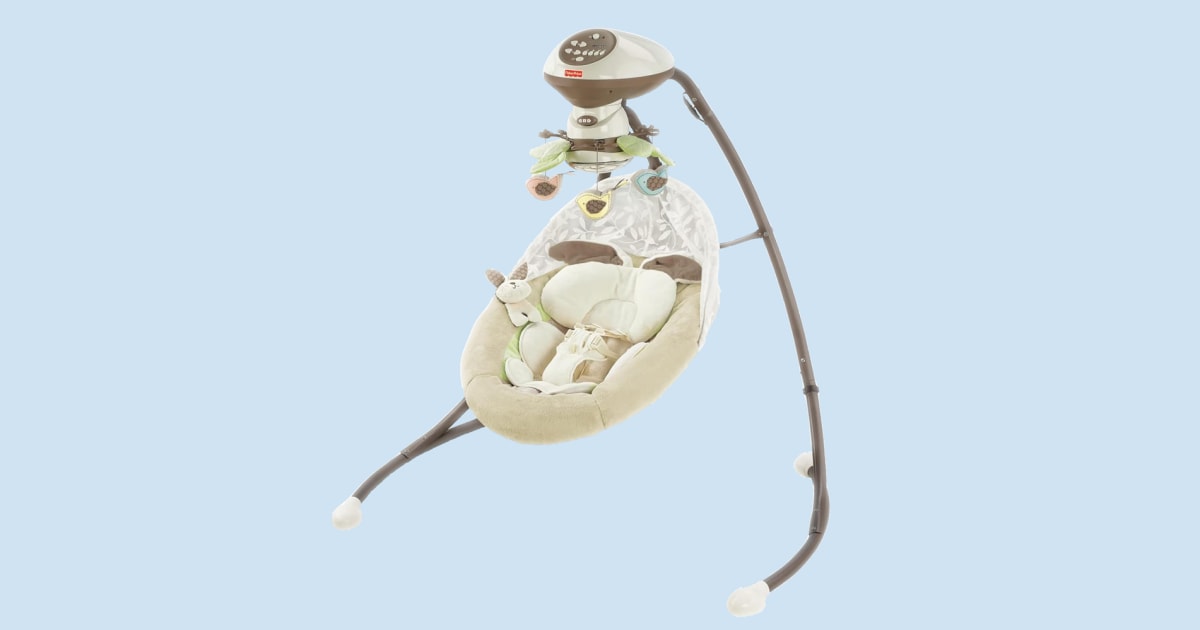Fisher-Price on Thursday recalled two components of its Snuga Swings, which are designed to soothe infants by swaying back and forth, and warned parents that the products should not be used for sleep due to a risk that babies could suffocate.
Between 2012 and 2022, Snuga Swings were linked to the deaths of five infants while they slept in the seats. In most of those cases, bedding materials were added to the swings, which can increase the risk of suffocation.
In an announcement, Fisher-Price instructed consumers to immediately remove the swing’s headrest and an insert from the seat pad that supports an infant’s body, since those components can increase the risk of suffocation. Consumers are eligible for a $25 refund if they remove the parts, cut them in half, label them and submit a photo of them to the company.
But in a strongly worded statement, Richard Trumka Jr., a commissioner of the U.S. Consumer Product Safety Commission, said the company’s efforts don’t go far enough. He called on Fisher-Price to recall the entire product and reimburse customers for the full cost: around $160.
“I believe that the flawed recall that Fisher-Price is announcing today is doomed to fail and will keep many babies in harm’s way,” Trumka said, adding that the company’s response was “a horrible example of putting profit over people.”
“My advice: get your $25 refund and then throw this product away,” Trumka said.
When asked for comment, a representative for Mattel, which owns Fisher-Price, referred NBC News to the company’s announcement.
Safety experts agree that inclined sleeper products like baby swings and rockers are hazardous because infants’ heads can slump forward, making it hard for them to breathe. Instead, experts recommend placing infants on their backs on a firm, flat surface during sleep or naptime.
Congress banned inclined sleepers for infants in 2022, but the law only applies to products with an incline greater than 10 degrees and for babies up to 1 year old.
Fisher-Price said in its announcement that infants can continue to use Snuga Swing while awake as long as the two recalled parts are removed first. The swing should never be used for sleep, the company said, and consumers should never add blankets to it or leave infants unbuckled or supervised.
The partial recall applies to 2.1 million Snuga Swings sold in the U.S. from October 2010 to January 2024, through vendors including Amazon, Toys R Us, Walmart and Target. The company also partially recalled around 99,000 swings sold in Canada and around 500 sold in Mexico.
In the last five years, Fisher-Price has recalled several infant products due to safety concerns.
In 2019, it recalled millions of Rock ‘n Play Sleepers after reports of 30 infant deaths, mostly attributed to babies rolling onto their stomachs or sides while using the portable bassinet. Eight more infant deaths followed, prompting Fisher-Price to issue a reminder to consumers last year about the recall.
A 2021 congressional report determined that Fisher-Price had ignored evidence that the Rock ‘n Play might be unsafe and continued to market the product despite knowing it could put infants at risk of serious harm. In total, the company has received reports of at least 100 infant deaths linked to the Rock ‘n Play.
Another four infant deaths have been associated with Fisher-Price’s Rock ‘n Glide Soother — a baby seat that vibrates and moves back and forth — prompting a recall in 2021. The infants were reportedly placed on their backs without being buckled in, then later found on their stomachs. The company recalled its Soothe ‘n Play Gliders at the same time, though no deaths were linked to the product.
Then, in 2022, Fisher-Price warned consumers that 13 infant deaths had been linked to its Infant-to-Toddler Rockers and Newborn-to-Toddler Rockers. However, the company didn’t recall those particular products, which convert from an infant seat to a rocker for toddlers. Instead, it reminded customers that the products should never be used for sleep. In a letter to Congress that year, Fisher-Price said its rockers could be used safely if parents monitored and properly restrained their babies.

